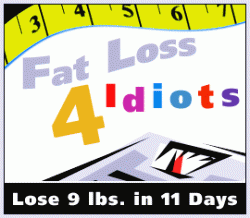Nutritionists know that our metabolism—the rate at which we torch calories—is largely out of our hands, being that it's determined by our age, height, and genes. However, they also know a few sneaky ways to ramp up the body's energy use. One is exercise, and the other is putting the right foods on your plate. We got the scoop on what people in the nutrition world eat to boost the burn.
(Take back control of your eating—and lose weight in the process—with our 21-Day Challenge!)
Lentils and sweet potatoes
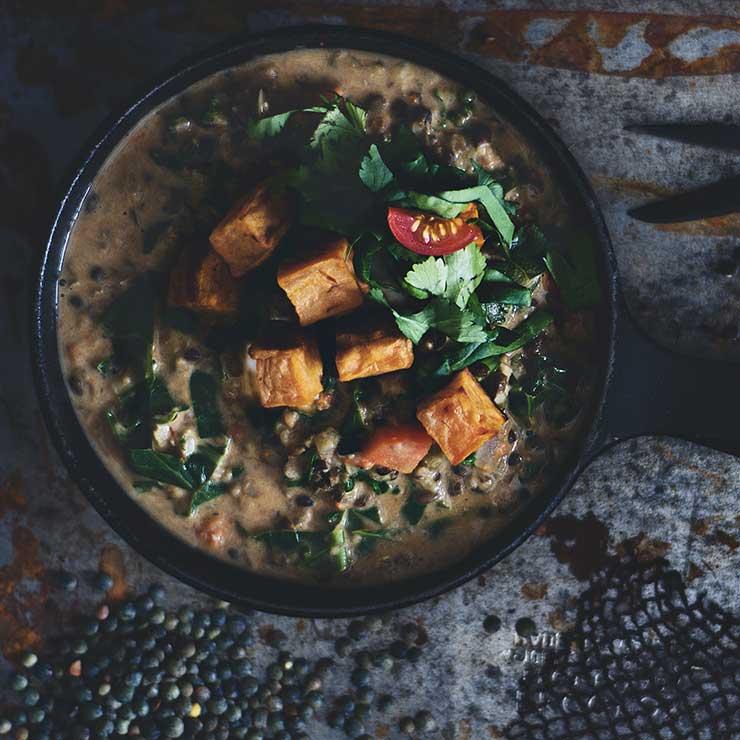 2/5
Lentils and sweet potatoes
2/5
Lentils and sweet potatoes
Nutritionist Marjorie Nolan Cohn, owner of MNC Nutrition in New York City, reaches for foods high in resistant starch, a unique kind of fiber. "Resistant starch isn't digested by the small intestine, which means it enters the large intestine whole, where it ferments," she explains. "This process creates beneficial fatty acids that can block the body's ability to burn carbs, so it uses stored body fat and recently consumed fat as fuel instead." A study in the journal Nutrition & Metabolism found that replacing just 5.4% of total carbohydrate intake with resistant starch increased fat-burning after a meal by 20 to 30%.
Cohn's resistant starches of choice are lentils and sweet potatoes, which are also nutrient-dense so they help to keep cravings at bay. "When your muscle and fat cells are nourished, the hunger hormone ghrelin is suppressed, which signals to your brain to feel satisfied," she explains.
Flaxseed and chia seeds
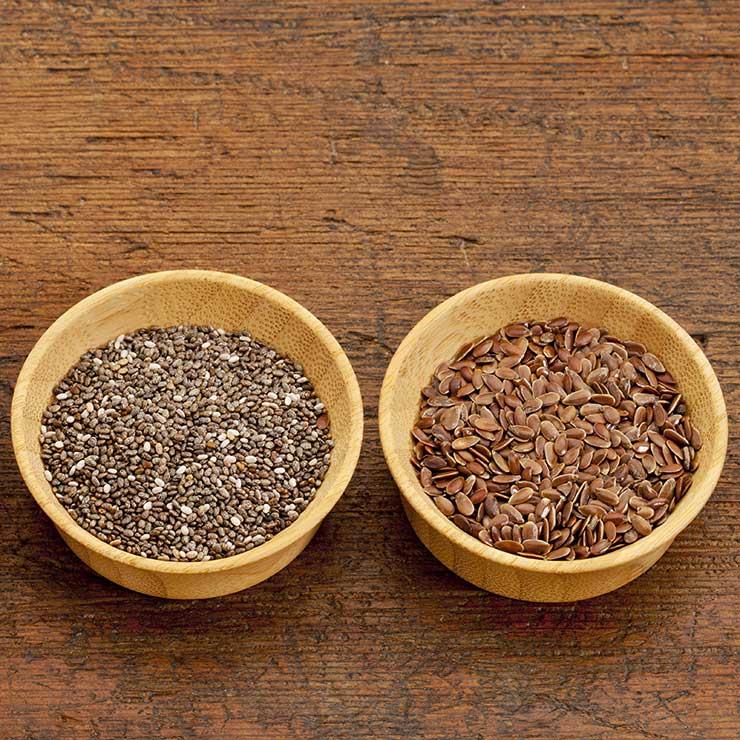 3/5
Flaxseed and chia seeds
3/5
Flaxseed and chia seeds
Certified Nutritional Counselor Jennifer Salos, a natural health educator at Chesapeake Holistic in Annapolis, MD, adds flaxseed and chia seeds to her foods because they're a good source of omega-3 fatty acids, which help rev the metabolism by reducing inflammation and balancing blood sugar. "When inflammation is low, we have less muscle and joint pain and are more likely to feel like exercising. And when blood sugar is stable, we tend to have fewer cravings, eat less, and feel more satisfied after meals," she says. Omega-3 fatty acids may also lower our body's resistance to the hormone leptin, which signals fullness and, as researchers from Monash University in Australia found, increases how fast fat is burned.
Coconut oil
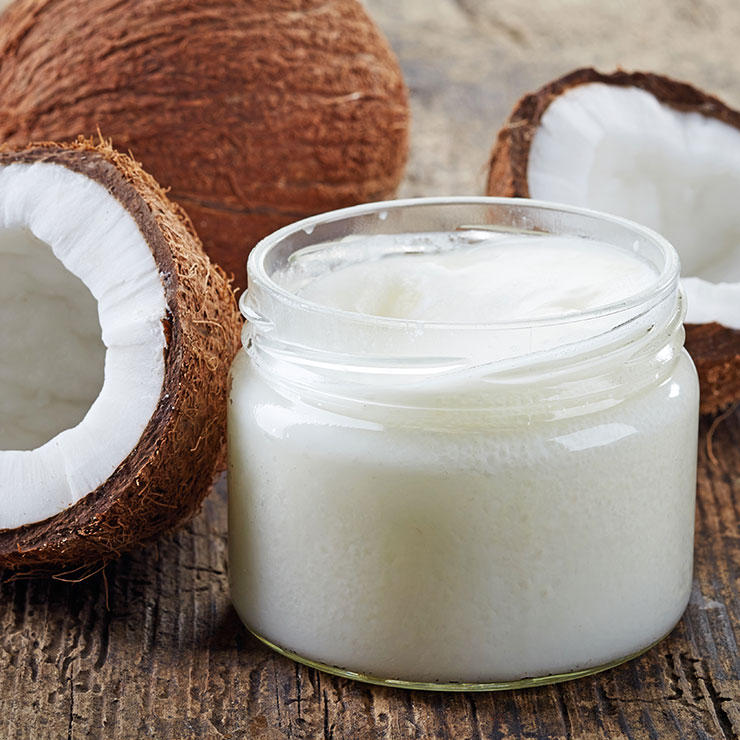 4/5
Coconut oil
4/5
Coconut oil
Salos cooks with coconut oil when her metabolism needs a "kick in the pants." Though it might seem like consuming fats will make you fat, coconut oil's medium-chain triglycerides (MCTs) are metabolized differently than other fats. "MCTs are sent from the digestive tract straight to the liver, where they are used as energy right away instead of being stored as fat," Salos explains. She adds 2 teaspoons to her morning tea and to smoothies, uses it to sauté vegetables, and brushes it on oven-baked sweet potato fries.
Tuna and Salmon
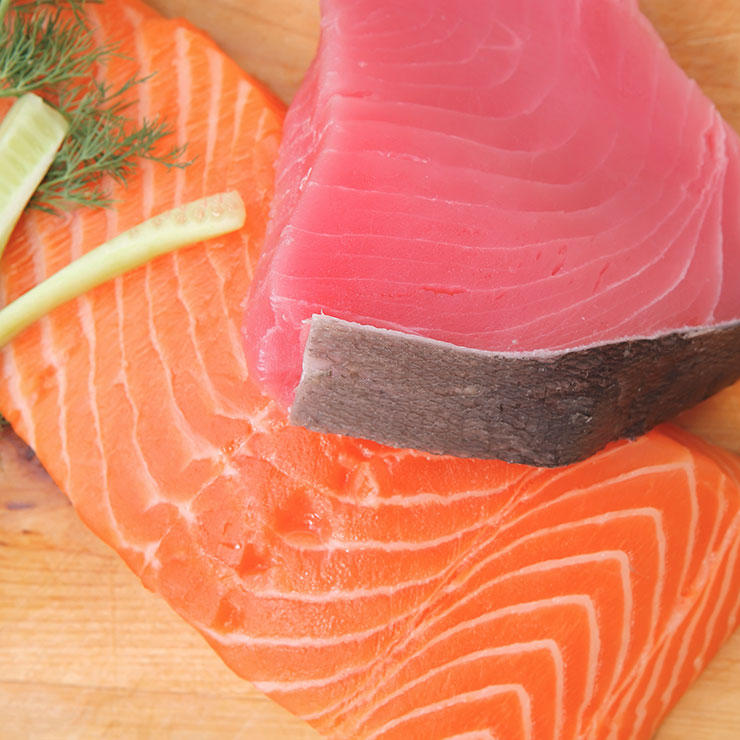 5/5
Tuna and Salmon
5/5
Tuna and Salmon
Los Angeles–based dietitian Patricia Bannan, author of Eat Right When Time Is Tight, reaches for protein in the form of tuna or salmon. "Because protein is more difficult for the body to break down and digest than other nutrients, it can increase postmeal calorie burn by as much as 35%," she says. "Protein needs differ by person, but typically, consuming 0.8 to 1 g of protein per kilogram of body weight per day should be sufficient to fuel weight loss." So that means that a 150-pound woman should aim for around 68 g. (To put that in context, one half-pound salmon fillet has about 40 g of protein.) Tuna and salmon are also rich in metabolism-boosting omega-3s. If you aren't into fish, Bannan recommends these other great protein sources: eggs, Greek yogurt, cottage cheese, nuts, and beans.
- Prev:19 Ways To Really, Finally Keep The Weight Off For Good
- Next:Have More Than 50 Pounds To Lose? Here Are 10 Ways To Get Started
 2/5
Lentils and sweet potatoes
2/5
Lentils and sweet potatoes
 3/5
Flaxseed and chia seeds
3/5
Flaxseed and chia seeds
 4/5
Coconut oil
4/5
Coconut oil
 5/5
Tuna and Salmon
5/5
Tuna and Salmon




